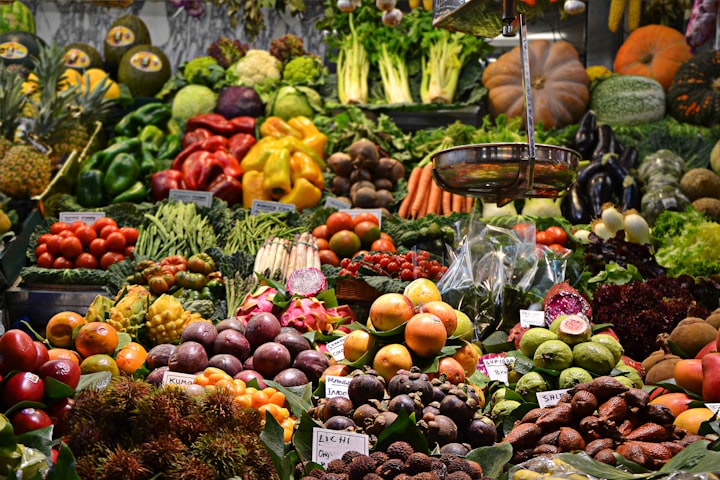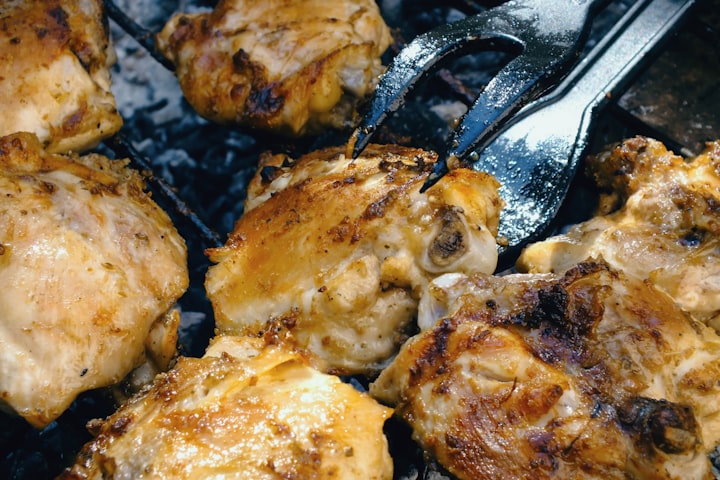Are plant-based meats "unhealthy"?
Protect your resolutions against bad arguments
A recent article for The Conversation written by Meghan McGee starts by acknowledging that many people have made New Year's resolutions to shift towards plant-based diets. If you expected a quick pat on the back for even trying, the author quickly cautions against this decision:
“But plant-based meats are often high in sodium, ultra-processed and not any healthier than the meat they imitate. Meanwhile, nearly half of the consumers think they are more nutritious. So if your resolution is related to health, you may want to reconsider switching to a plant-based diet.” If you have additional reasons for making those resolutions (environmental, ethical, financial), they don't deserve to be even mentioned before you're told to reconsider.
She includes a reference for the opinion survey, but none for the bold claim that these products are not any healthier (which also implies she doesn't think they're less healthy). If anything, the survey only measures whether people think these products are healthier based on the nutritional information and ingredient lists. Two basic problems emerge: people might not be qualified to actually determine what's “healthy,” and it's foolish to talk about any isolated food as healthy or unhealthy without considering a person's whole diet, as well as several other factors impacting health.
Worst of all, McGee makes a bizarre blunder for a “nutrition scientist,” and one that becomes the shaky foundation for her argument: she starts with a vague nutritional claim about processed plant-based meats and extrapolates that a plant-based diet somehow equals replacing every gram of animal products with ultra-processed plant-based meat alternatives, especially the high-fat, high-sodium blockbusters like Impossible and Beyond Meat.
Per capita meat consumption is about 150lbs per person a year in Canada, and 264lbs in the US. These are averages, and since some people eat a lot less than these amounts, others must eat a lot more, and these don't account for seafood, eggs, and dairy. But here's what no one's New Year's resolution looks like:
“Go vegan by replacing 150lb of meat with 150lb of Beyond Meat,” or even “replacing 150lb of meat with any kind of processed meat alternatives.” Not only would that be prohibitively expensive, I very much doubt anyone would do so even if they had the money, especially if their primary goal was to be healthier. We can call this a strawman diet, as nutritionists (whether or not plant-based themselves) never urge anyone to eat a diet based on high amounts of processed foods.
She goes on to claim that "according to one recent study, the nutritional benefit of plant-based foods is minimal." It's plausible that she didn't read the study past the abstract, as it clearly and often contradicts every point she's trying to make throughout her article, other than offering caution about too much reliance on junk food – plant-based or otherwise – as that could result in a shortage of micro-nutrients and too much sodium, sugar, and fat intake.
What this study does claim is that when researchers modelled hypothetical diets based on a single day's consumption, it remained “unclear whether these novel [plant-based meat alternatives] to replace animal foods carry the same established nutritional benefits as traditional plant-based diets based on pulses, legumes and vegetables” but that "much more is known about the health benefits of omitting meat in favour of traditional plant sources such as legumes, with extensive evidence demonstrating lowered risks of cardiovascular disease, diabetes, cancer and obesity for vegetarians and vegans. Even partially reducing meat while increasing healthful plant-based foods has been shown to be beneficial and is associated with lower risks of disease and mortality."
Alternatives to the alternatives
By generalizing plant-based meats, she also seems to assume every meat alternative is nutritionally equivalent. They're clearly not. In Vancouver, where I live, several local companies (PlantBase, TMRW, The Very Good Butchers, Coastie Craft Burgers) now produce really flavourful “meat alternatives.” When looking at these products, you have to wonder what the threshold for processed is and what that means, and at some point, you have to seriously ask whether a bean-and-oats burger made in an industrial food processor and put into a glass jar is really a “processed meat alternative” at all.
By quickly perusing their nutritional info and comparing 4oz burger patties, I find that all of them have less saturated fat and sodium than Impossible or Beyond burgers, which in turn have less saturated fat than a beef burger. It's also debatable whether all saturated fat has the same effects (for example, coconut oil vs. animal fats).
The sodium content of Impossible and Beyond is indeed a bit high, but comparing that to a raw beef patty is quite deceiving. These burgers are already seasoned, and raw beef patties are low in sodium because that's only the naturally occurring sodium in the meat, and you haven't added any salt yet. Also, assuming you're not eating this patty by itself, there's salt in the mayo, the cheese, the mustard, the ketchup, and the fries. There's also cholesterol in the meat, the cheese and the mayo, and none in plant-based alternatives, as plants don't contain cholesterol.
Most sodium in a standard North American diet comes from processed foods like chips, deli meats, canned soups and sauces, and surprisingly, even cereals and sweets. And processed foods account for more than half of all calories. If sodium intake is a concern (it is), should you really demonize the Beyond burger while leaving the beloved deli ham and frozen pizzas alone?
Some plant-based products do indeed have unnecessarily high levels of saturated fat and sodium, but they do so to compete with the rest of the products in the supermarket. Processed products are salty, sugary, and fatty for a reason: it helps them sell. Beyond and Impossible probably wouldn't be as successful as they are if they didn't taste indulgent. But are they “healthy” or “unhealthy”, after all?
A diet is not a meal
What do these numbers on food labels even mean? Are they maximums, minimums, both, neither? What happens if you don't get enough fiber in one day, and what happens if you go over the daily recommendation for saturated fat or sodium one day a month, or two? Unless you have a specific condition that requires you to be extra careful, you don't immediately become unhealthy if, once a month, you go to the movie theatre and indulge in a bag of popcorn with an inordinate amount of salt, and a giant soda with an inordinate amount of sugar.
If, once or twice a month, you make a Beyond burger with olive oil potato wedges and a salad at home, as opposed to eating a bacon cheese burger with fries at a pub, what is the point of comparing only the two patties and saying that the Beyond patty doesn't seem much healthier? What about the bacon, and the cheese, and the bun, and the oil the fries were fried in, and the ketchup...? What about what you eat the rest of the day, the week, the month, the year?
Even for people who eat a lot of fast food and junk food, the effects of some substitutions may be beneficial. A new McPlant burger (with a Beyond patty, but still served with dairy cheese and regular mayo) is calorically equivalent to a quarter pounder with cheese (around 520 calories), but it has less saturated fat, more fiber, more iron (although non-heme), less sodium, and a quarter of the cholesterol. Replace the cheese and mayo with plant-based alternatives and these difference would grow a bit still. You could and should certainly make the case that this McPlant burger isn't what you should prioritize if your goal is to be healthy (it isn't what your doctor recommended), but you can't really make the case that it's less health-promoting than what it's substituting, even in isolation.
But a diet is not a meal, and a meal is not just one ingredient. And your diet is not the only variable affecting your health. What about your genetic predispositions to illnesses, your sleep, your exercise, your social life, your drinking, your smoking, your stress, your exposure to environmental toxins...?
Indeed, vegetarians and vegans may still indulge in the occasional Impossible or Beyond Burger (although most of their clientele are still meat-eaters) but even if healthier choices could have been made instead, these burgers may account for a small percentage of their total monthly calories, and you'd still be very wrong to extrapolate about their whole diet based on the nutritional profile of these products alone.
Not again with the incomplete protein
Next, McGee makes a tired old claim that “animal sources like meat, milk and eggs are complete proteins, meaning they contain enough of the nine essential amino acids we must get from our diets every day. Plant-based foods like fruits, vegetables, nuts, seeds and grains often lack one or more of these amino acids and need to be eaten in combination.”
This is misleading and barely relevant at the same time, and a favourite last-ditch card for meat lovers to play. Plants do not lack any of the essential amino acids. Even the one study she cited above concedes that “animal and plant proteins are both nutritious, and protein quality and quantity are often not compromised when switching to well-designed plant-based diets.”
Several plants do have a complete amino acid profile (quinoa, soy, hemp), and many protein powder mixes are crafted with a diversity of plants in order to help you hit those targets. In fact, most meat alternatives are crafted with a complete profile, regardless of what other shortcomings they may have.
Several plants have insufficient amounts of one or another amino acid, so plants “need to be eaten in combination” essentially translates to “don't just eat one single plant food for all your calories.” Just as you don't know any vegans who eat Beyond Meat every meal, you don't know any vegans who only eat one type of plant either. Again, from the one study she cited as supporting her claim: “Most plant-based foods are consumed in combination and from a variety of sources such that plant-based diets adequately meet requirements for all essential amino acids in a calorie-sufficient diet.” Told you she didn't read it.
Stepping stones
People often have several reasons for wanting to make the switch. But our culture, our habits, and our physiological cravings are hard to shake overnight. Plant-based meat alternatives provide useful stepping stones on the path to giving up animal products.
Those of us who have made the switch still crave convenience, speed, and indulgent pleasure on occasion. You may not have many plant-based dishes in your repertoire. You'll have to do a lot of learning, almost from scratch, and that can be discouraging. Ready-made plant-based dishes and meat alternatives also help lessen the burden of this steep learning curve. Options in restaurants are growing fast, plant-based meal prep plans are readily available in many large cities, and there is no shortage of recipes online.
At one point, there is a sign of redemption when McGee appears to agree with current nutrition consensus: "According to nutrition scientists and Canada’s Food Guide, plant-based is the recommended way we should be eating. Fill half your plate with vegetables and fruits, and the other half with whole grains and proteins,” but this redemption is short-lived as she taints it with a bizarre caveat: “But 'plant-based' also refers to anything from meat to paint to pillowcases."
At this point, I reluctantly agree with the title of her article: plant-based doesn't always mean healthy! But just as you don't know any vegans who only eat one plant, or who eat Beyond meat for every meal, you certainly don't know any vegans who eat plant-based pillowcases and paint!
None of this is new. “Vegan” has referred to things like soap, shampoo, clothing, and even hotels for decades. The term “plant-based” emerged as a diet-specific alternative to “vegan”, which mostly refers to a lifestyle of exclusion of all products derived directly or indirectly from animals (products tested on animals, for example). Lately, perhaps the meanings have begun to converge. Personally, I find that the word “vegan” triggers a moral allergic reaction in meat eaters in a way that “plant-based” doesn't (yet). But do people really think the vegan soap and shoes are edible? Would they try to eat the furniture in a vegan hotel? Do they really think that anything labelled plant-based “milk” or “cheese” will be confusing for consumers who have perhaps forgotten what their milk cartons look like?
If you're somewhere on the flexitarian path to plant-based, you're stuck between meat fetishists who will attempt to dissuade you with silly arguments such as the ones McGee makes in her article, and some zealous vegan activists who will shame you for not being good enough soon enough.
The rest of us commend you for trying. Use but don't abuse the stepping stones, and aim for a high variety of unprocessed or minimally processed plants. Sometimes you take a few steps backwards, and you give in to strong cravings. Keep moving on without shame. Make quarterly resolutions, monthly resolutions, or even weekly ones if you have to.
Isn't that a much fairer New Year's message than using shoddy arguments to dissuade people from their resolutions to be healthier, more sustainable, and more ethical?
About the Creator
Scott Hardy
Writer, musician, chef, compulsive bibliophile and cinephile, from Vancouver, Canada.







Comments
There are no comments for this story
Be the first to respond and start the conversation.